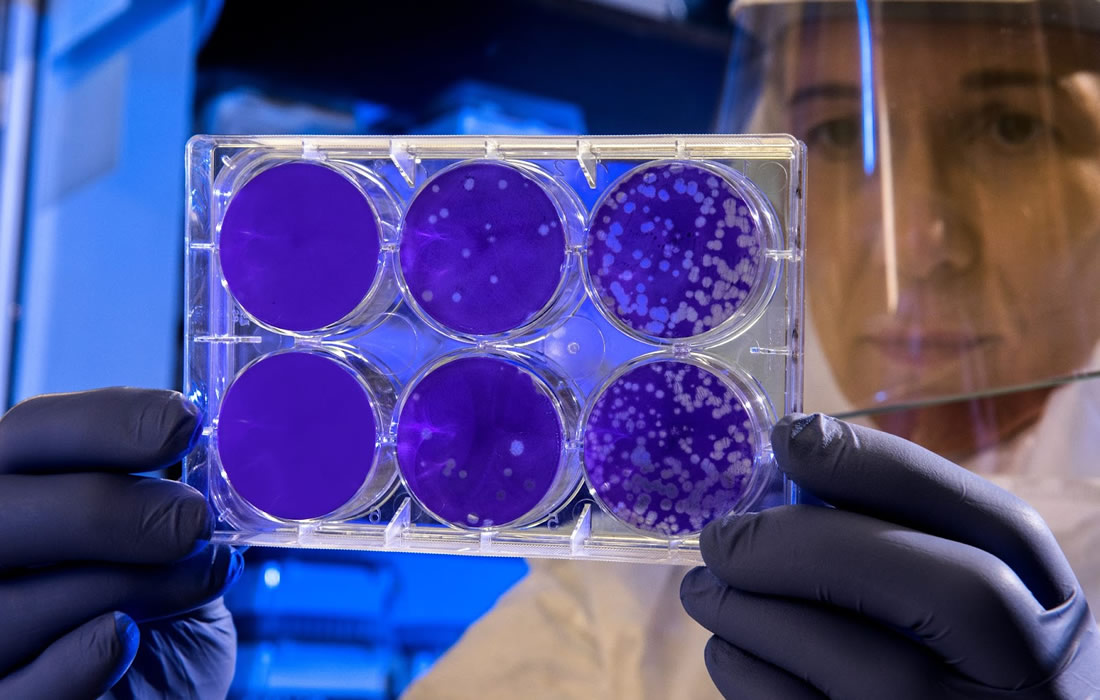Inflammatory bowel disease, or IBD, describes Crohn’s disease and ulcerative colitis, two chronic diseases that cause inflammation in the intestines. IBD, which affects about 3 million adults in the United States, is an autoimmune disorder — a condition in which the body’s immune system attacks healthy tissues. Its symptoms include diarrhea, rectal bleeding, fatigue, weight […]
Monthly Archives: April 2023
Scientists have created balls of cells that resemble embryos and trigger signs of early pregnancy in macaques. The stem-cell-derived blastoids could help researchers understand human embryo development without the ethical dilemmas of using real embryonic cells, according to a study published today in Cell Stem Cell. “The work highlights the amazing potential of stem-cell- based […]
ß cells are critical guardians of the body’s metabolic balance. They are the only cells capable of producing insulin, which regulates blood sugar levels by designating dietary sugar for immediate use or storage. In Type 1 diabetes, ß cells are attacked by the body’s own immune system, rendering them unable to produce insulin. Type 2 […]
Aging, or senescent cells, which stop dividing but don’t die, can accumulate in the body over the years and fuel chronic inflammation that contributes to conditions such as cancer and degenerative disorders. In mice, eliminating senescent cells from aging tissues can restore tissue balance and lead to an increased healthy lifespan. A team led by […]
While new drugs to treat Alzheimer’s disease tend to receive the most public attention, many well-researched ways to care for people with dementia don’t involve medication. A new evaluation compared the cost-effectiveness of four non-drug interventions to the usual care received by people with dementia and found that the interventions not only resulted in a […]
Analyzing changes to DNA in the blood can improve the ability to predict a person’s risk of developing type 2 diabetes within a decade. Scientists looked at the influence of these changes — known as DNA methylation — alongside other risk factors in almost 15,000 people to predict the likelihood of developing the condition years […]
“There’s a dogma in the field that everyone needs eight hours of sleep, but our work to date confirms that the amount of sleep people need differs based on genetics,” said neurologist Louis Ptacek, MD, “Think of it as analogous to height; there’s no perfect amount of height, each person is different. We’ve shown that […]
Researchers at Simon Fraser University are studying the genes of superbugs to aid the development of new and effective treatments for drug-resistant bacterial infections. “Antimicrobial resistance occurs when the disease-causing bacteria has ways to overcome the antibiotics that we use in treatment for infections,” says assistant professor Amy Lee, of SFU’s Department of Molecular Biology […]
Each year about 1.5 million people in the U.S. survive a traumatic brain injury due to a fall, car accident, or a sports injury, which can cause immediate and long-term disability. University of Maryland School of Medicine (UMSOM) researchers wanted to better understand what happens in the brain during injury, so they conducted a study […]
A recent study, published in Neuropsychopharmacology, conducted by researchers from the University of Helsinki and the University of Eastern Finland, sheds light on the mechanisms of neural plasticity induced by the antidepressant fluoxetine. Previous research by the same team showed that chronic treatment with antidepressants increased neural plasticity through direct binding to neurotrophic receptor TrkB, […]










